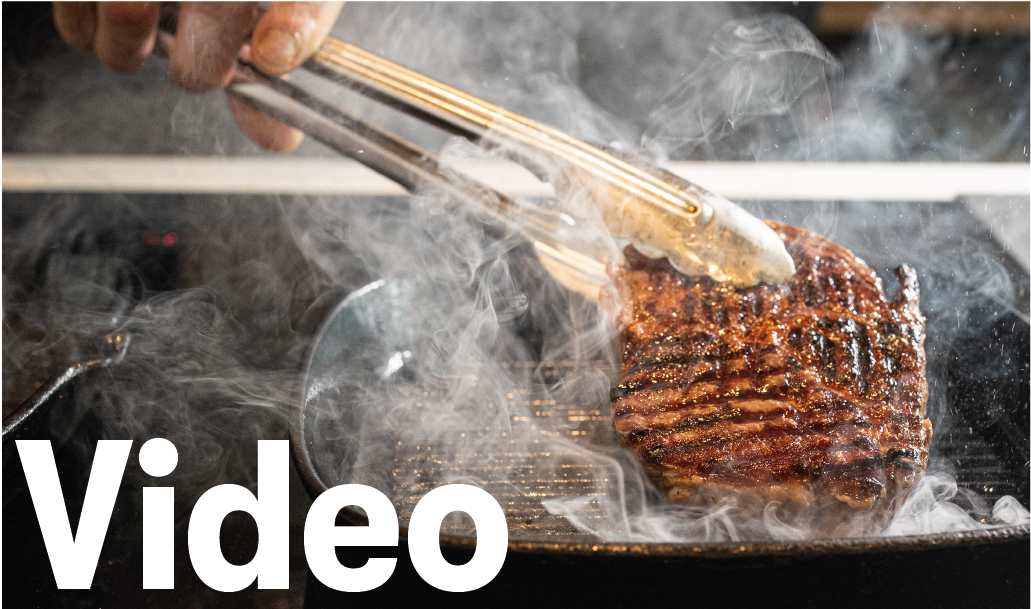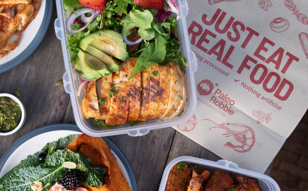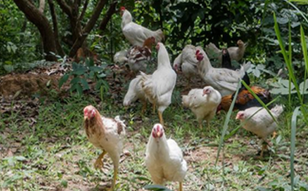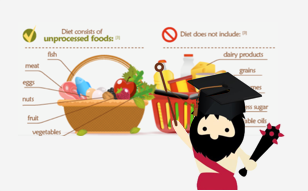Do you know the requirements needed to label eggs as pasture-raised or free-range eggs?

Our hens topping up their vitamin D and searching for roads to cross
Free-range Versus Pasture-raised
There are 3 major differences between free-range and pasture-raised eggs. They are:
1. The farm environment - to label eggs as free-range, hens require no more than 2 square feet of space and some outdoor access, but that may be a mere hole for them to poke their heads through.
To label eggs as pasture-raised, each hen must have at least 108 square feet, and they must have access to open pastures (that's 54x more space per hen than free-range!).

Our co-op chicken farm is approximately the size of four football pitches (1)
2. Their diet! - to qualify as free-range, farmers can feed hens a 100% GMO-free corn or soy-based diet, whereas pasture-raised hens must receive at least 30-50% of their food from forging pastures. Free-range chickens can also be given antibiotics if they fall sick.

Paleo Robbie hens get their food from 100% natural foraging (2)
We go above and beyond the “pasture-raised” label requirement: We do not feed ANY corn or soy pellets to our chickens. Our hens (and ducks!) are free to explore pastures all-day, hunting for termites, worms, bugs, ants and foliage, and live on a strict 100% foraging diet with absolutely no antibiotics or growth hormones.
Instead, we add extra crickets to our pasture so nobody goes hungry, and also provide them with turmeric to feed on. Turmeric has been used for hundreds of years as a natural way to promote chicken health without resorting to antibiotic injections (3).

Our hens egg-cited to make human friends
3. Nutrient density - The above two factors combine for healthier, more nutrient-dense eggs from pasture-raised hens. Healthier hens and ducks lay healthier eggs, go figure.
A study comparing supermarket eggs to pasture-raised found that pasture-raised eggs contained (4):
- ‣ 6 times more vitamin D
- ‣ 2⁄3 more vitamin A
- ‣ 2 times more omega-3 fatty acids
- ‣ 3 times more vitamin E
- ‣ 7 times more beta carotene
- ‣ 1⁄3 less cholesterol
- ‣ 1⁄4 less saturated fat
Long story short: You can eat less and get more when you choose pasture-raised.
Duck Eggs Versus Chicken Eggs
Duck eggs are larger in size (up to 50% bigger!) which means per egg they contain more protein and healthy fats than chicken eggs.

Our duck eggs are 30-40% larger in size - pasture-raised eggs also have stronger shells because hens are healthier
Duck eggs have a darker orange yolk and a creamier taste. A “sunny side up” duck egg makes the perfect protein dipping sauce for your wild fish or pasture-raised meat, or goes very well on top of your home made pad ka prao dish. It also makes a great base for a nutrient-dense omelette.
Chicken eggs, by comparison, have a softer shell, are easier to hard boil, and work better for most baking purposes as the yolk and white is thinner to mix.
%2CEDdtenVl3hY%3D.jpeg)
How to know if your eggs are pasture-raised? Look for a dark yolk
(Chicken egg left / duck egg right)
Experiment with both to mix and match their flavor profiles with your current recipes. We know healthy hens and ducks produce higher quality eggs and we are proud to offer our tribe 100% pasture-raised eggs.
Scramble your way to better health



 Latest
Latest Newsletters
Newsletters Learn
Learn Recipes
Recipes Video
Video


